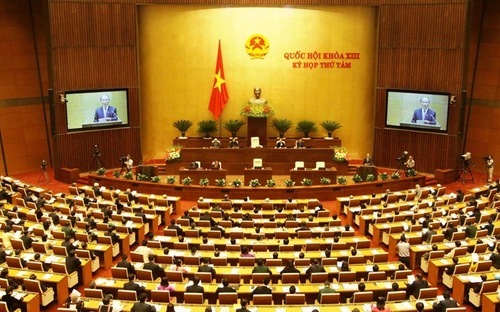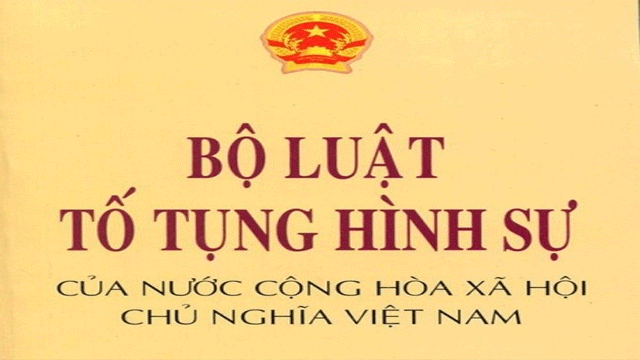What are the regulations on postponement of enforcement of extradition decisions and temporary extradition in Vietnam? - The Khiem (Dong Nai, Vietnam)

Regulations on postponement of enforcement of extradition decisions and temporary extradition in Vietnam (Internet image)
1. What is extradition?
According to Clause 1, Article 32 of the Law on Legal Assistance 2007, extradition means the hand-over by one country to another country of a person who has committed a criminal act or been criminally sentenced and is being present in its territory so that the extradition-requesting country conducts the penal liability examination or judgment enforcement against such person.
2. Regulations on extradition decisions in Vietnam
Regulations on extradition decisions under Article 40 of the Law on Legal Assistance 2007 are as follows:
- Within ten working days after the receipt of extradition request dossiers transferred by the Ministry of Public Security, the provincial-level Peoples Courts of the localities where the persons requested for extradition are residing, being detained or held in custody or serving their imprisonment sentences shall handle them and notify the Peoples Procuracies of the same level thereof in writing.
While preparing to consider the extradition requests, the concerned provincial-level Peoples Courts may request competent bodies of foreign countries to clarify unclear points in the extradition request dossiers. Written extradition requests and written replies shall be sent via the Ministry of Public Security.
- Within four months after handling the requests, provincial-level Peoples Courts shall, on a case-by-case basis, issue one of the following decisions:
+ Decision to consider the extradition request when the conditions prescribed by this Law are fully met;
+ Decision to suspend the consideration of the extradition request and return the dossier to the Ministry of Public Security in case the request does not fall under their jurisdiction, the foreign country withdraws the extradition request or the person requested for extradition has left Vietnam or for other reasons the consideration cannot proceed.
- Provincial-level Peoples Courts shall consider an extradition request within thirty days after issuing the decision defined at Point a, Clause 2 of this Article and immediately transfer a dossier set to the Peoples Procuracies of the same level.
- The extradition request shall be considered at sessions of a council consisting of three judges, including a presiding judge, with the participation of members of the Peoples Procuracy of the same level.
The extradition request-considering council works in the following order:
+ A council member presents the contents of the dossier of the extradition-requesting country and states his/her opinions on the legal grounds of the extradition;
+ The procurator states the Peoples Procuracys viewpoints on the extradition;
+ The lawyer or lawful representative of the person requested for extradition presents his/her opinions, if any;
+ The person requested for extradition states his/her opinions;
+ Based on the provisions of this Law, relevant provisions of other Vietnamese laws and treaties to which Vietnam is a contracting party, the council discusses and decide by majority on the extradition or extradition refusal.
- Within five working days after the issue of decisions on extradition or extradition refusal, the provincial-level Peoples Courts shall send the decisions to the persons requested for extradition, the Peoples Procuracies of the same level and the Ministry of Public Security for the exercise of rights and performance of obligations according to law.
Persons requested for extradition may appeal and the Peoples Procuracies of the same level may protest within fifteen days, the Supreme Peoples Procuracy may protest within thirty days as from the date the provincial-level Peoples Courts issue decisions.
The provincial-level Peoples Courts shall forward the dossiers, appeals and protests to the Supreme Peoples Court within seven days from the date the appeal or protest time limit expires.
Within twenty days after receiving the extradition dossiers and appeals or protests, the Supreme Peoples Court shall open court sessions to consider the appealed or protested decisions of the provincial-level Peoples Courts; the appellate council shall decide on the extradition or extradition refusal.
The order for examination of appeals or protests against extradition decisions of provincial-level Peoples Courts complies with Clause 4 of Article 40 of the Law on Legal Assistance 2007.
- Legally effective extradition decisions include:
+ Decisions of first-instance courts, which are not appealed or protested against;
+ Decisions of the courts of appeal.
3. Regulations on postponement of enforcement of extradition decisions and temporary extradition in Vietnam
The postponement of enforcement of extradition decisions and temporary extradition under Article 44 of the Law on Legal Assistance 2007 is as follows:
- When persons requested for extradition are being examined for penal liability or serving their imprisonment sentences in the Vietnamese territory for crimes other than the crimes requested for extradition:
Provincial-level Peoples Courts that have issued extradition decisions may themselves or at the proposal of the Peoples Procuracies or police offices of the same level postpone the enforcement of the decisions on extradition of those persons until the process of penal liability examination ends or the declared judgments are fully or partly served.
The Ministry of Public Security shall notify the extradition-requesting countries in writing of the extradition postponement at least ten working days before the expiration of the time limit for postponement of enforcement of the extradition decisions.
The presidents of provincial-level Peoples Courts that have postponed the enforcement of the extradition decisions shall issue decisions to enforce the extradition decisions and send them together with relevant documents and dossiers to the police offices enforcing the extradition decisions for notification to the requesting countries and continued extradition under the specific agreement with the requesting countries.
- If the postponement of the enforcement of extradition decisions above obstructs the penal liability examination in foreign countries due to the expiration of the statute of limitation therefor or causes serious difficulties to the penal liability examination for the crimes under extradition requests:
At the proposal of the Peoples Procuracies or police offices and the proposal of the requesting countries, competent Peoples Courts, based on Vietnamese law and specific agreements with the requesting countries, may issue decisions permitting the temporary extradition of the persons requested for extradition to the extradition-requesting countries under the Law on Legal Assistance 2007.
- Persons subject to temporary extradition must be immediately returned to Vietnam after the criminal proceedings of the requesting countries end or the temporary extradition duration agreed upon by Vietnam and the concerned foreign countries has expired.
Upon new extradition requests of the requesting countries, Vietnamese courts shall consider under the provisions of the Law on Legal Assistance 2007 to agree on the new extradition if there are plausible reasons therefor.
Quoc Dat
- Key word:
- extradition decisions in Vietnam
 Article table of contents
Article table of contents





.Medium.png)
.Medium.png)
.Medium.png)
.Medium.png)
